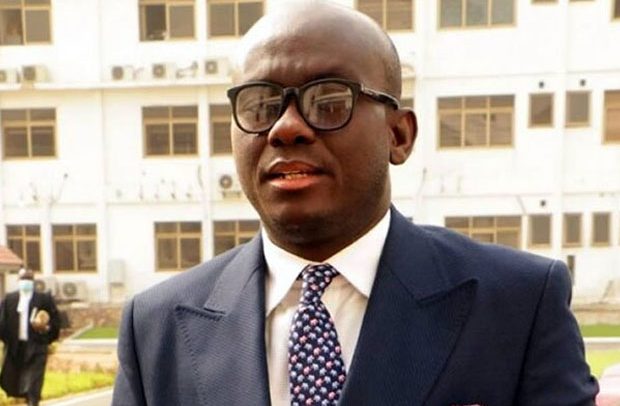Godfred Yeboah Dame
An Accra High Court will on July 31, 2023, give a ruling on an application for interim injunction filed by the Attorney General seeking to restrain Cassius Mining Limited from filing another international arbitration against the Government of Ghana.
The court, presided over by Justice Akua Sarpomaa Amoah, will on that day also make a decision on preliminary objection raised by counsel for the Australian company regarding the propriety or otherwise of the action initiated against it.
Attorney General, Godfred Yeboah Dame, is before the court seeking an order of interim injunction restraining Cassius Mining Limited from instituting or pursuing any arbitration outside the jurisdiction of Ghana under the Prospecting Licence Agreement between it and the Government of Ghana.
The application is also seeking an order restraining the mining company from taking any step in international arbitration proceedings against the Government of Ghana until the arbitration instituted by the company against Ghana at the Ghana Arbitration Centre in 2018 has been heard and determined.
Mr. Dame contends that clause 21 of the Prospecting Licence Agreement between the mining company and the Government of Ghana specifically required any question or dispute that arises regarding the rights, powers, duties and liabilities of the parties thereto, to be referred to arbitration in accordance with the Alternative Dispute Resolution Act, 2010 (Act 798) of Ghana.
Notwithstanding the pendency of its own arbitration filed before the Ghana Arbitration Centre, Cassius Mining on February 3, 2023, instituted international arbitration at the Permanent Court of Arbitration at The Hague (PCA) against the Government of Ghana claiming about US$300 million, which was suspended following objections by the Attorney General.
Rather than returning to Ghana to pursue its ongoing arbitration at the Ghana Arbitration Centre, Cassius Mining instituted another international arbitration proceeding by purporting to file what it described as an “Amended Notice of Arbitration”.
It is this move that the Attorney General referred to as “forum shopping” by the company, which he is seeking the court to restrain the company from embarking on.
The court last week directed the company to file a response to the writ and further ordered the parties to file their written addresses for it to take a decision on the matter.
Appearing before the court yesterday, Joseph Kwadwo Konadu, counsel for Cassius Mining Limited, raised a preliminary objection to the interim injunction and argued that Section 39:3 of the Alternative Dispute Resolution Act (Act 798), which is the basis of the AG’s application, allows the court’s intervention under circumstances such as urgency.
He said under Section 39:3 where the application is not one of urgency, the court only has jurisdiction to proceed when the application is on notice to the other party and the permission of the tribunal had been obtained by the applicant or the parties have agreed in writing.
He indicated that under Section 39:2 of Act 798, the court can proceed without the conditions in 39:3 if the issues raised are issues of urgency or for the preservation of evidence or assets.
“The current application is not for the preservation of evidence or assets. Indeed, it is clear from paragraph 36 of the affidavit in support that this is an application for an anti-arbitration injunction… obviously the parties have not agreed in writing for this application to move,” Mr. Konadu added.
This was opposed by the Attorney General who argued that the preliminary objection is baseless and seeks to distort the nature of the application before the court.
He said the application before the court is very specific and invokes the court’s power under Section 39:(1) (e) only and not any other provision of Act 798.
Mr. Dame averred that it is only when an application seeks to invoke the court’s power for the purpose of preserving assets and evidence under Section 39:2 of Act 798 that the demonstration of urgency is required.
“Further, in the case of an interim injunction under Section 39:(1) (e) there is no requirement for the demonstration of any urgency, therefore, the attempt by my learned friend to extend the application to Section 39:2 and 39:3 to an application brought under 39 (1) (e) is completely misconceived and unwarranted,” he argued.
The Attorney General also told the court that assuming there is a requirement for urgency, the case before the court clearly shows the need for urgency for the court to impose an interim injunction to restrain the respondent from “embarking on its abusive process of forum shopping in other jurisdictions which we have raised in the application before you.”
Mr. Dame added that “sanctioning the conduct of the respondents to proceed on arbitration under rules alien to the mining agreement between the parties would have the consequential effect of subjecting the parties to the jurisdiction of foreign courts and not this honourable court, and that must be jettisoned by this court and protect our sovereignty as a nation.”
Justice Amoah, after listening to the parties, adjourned the case to July 31 for ruling.
BY Gibril Abdul Razak

